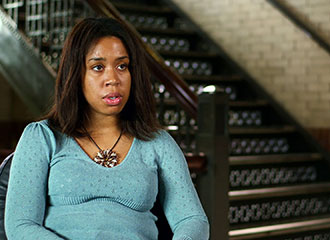3 Things to Consider in Finding the Right Therapist
3-minute read
3 Things to Consider in Finding the Right Therapist
3-minute read
Finding the right therapist and developing a relationship based on mutual trust is an important step in your mental health journey. A strong relationship and your discoveries in therapy can inspire you to make positive and lasting changes in your life. But finding the right person might take some time.
Here are three things to keep in mind.
1. Be Patient
Many people who start mental health treatment experience a rapport right away. Others may have to meet with several therapists before something clicks. Veterans are no different, and you shouldn’t hesitate to move on if something isn’t right. It is not a waste of time to spend a few sessions with a therapist who turns out to be the wrong fit. Each step is a learning experience.
“I went to quite a few therapists before I found the right one,” says Jennifer, a U.S. Navy Veteran. “You’ve just got to make sure you find the therapist you connect with. And it’s OK to say no to a therapist you don’t, because you can’t connect with everybody.”
Your primary care doctor, another health care provider you trust, or a VA patient advocate can help you through this process.
2. Keep an Open Mind
The right therapist may not look exactly like the person you pictured and may not be just like you. Sometimes differences in age, sex, or background can help you see things from a different perspective.
“‘She’s never been in the military. She’s a lot younger than I am. This is not going to work,’” said David, a U.S. Army Veteran, recalling his reaction to meeting his new therapist for the first time. “And I found out that she was full of insight and her specialty was also PTSD with combat Veterans.”
Some Veterans prefer to work with therapists who have a military background. They may feel that therapists who are Veterans themselves can relate to their issues better than a civilian can. But civilian counselors can be just as effective as Veteran therapists.
“There’s a lot of service members that don’t want to talk to a civilian psychologist, or a counselor, or a psychiatrist, because they just don’t feel like they’ll understand,” says Erin, a U.S. Army Veteran. “But you don’t know until you go to that counselor.”
3. Be Honest
Being honest in therapy and opening up about your experiences and how you’re feeling are key to making progress. Becoming comfortable sharing your thoughts and feelings with a professional may also lead to better communication with your family and loved ones.
“Talking to the psychologist actually helped me be able to talk to my wife better,” says Brandon, a U.S. Army National Guard Veteran. “You get comfortable telling your psychologist things that you don’t think you should tell anybody, and then you can start breaking some of those things down to your spouse better.”
Honesty about the therapy experience itself is important, too. “If you’re going and you’re finding you’re just not making that connection, you need to be honest and find someone else,” says Marcus, a U.S. Army Veteran. “I didn’t do that [at first], and I can’t help but wonder if I’d have just been honest up front and said, ‘I don’t think this is helping. Can I see someone else?’ what I might have been able to avoid going through.”
Learn more about how to find a therapist.

